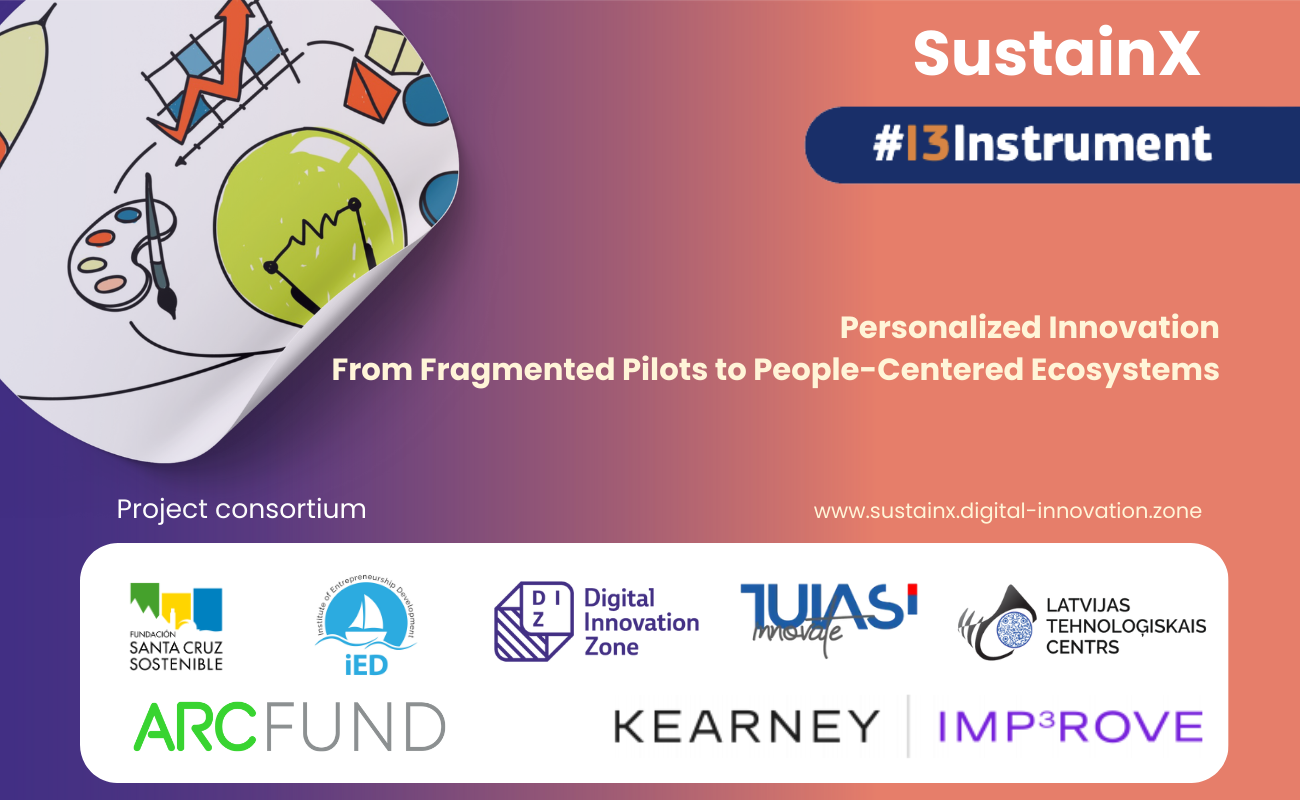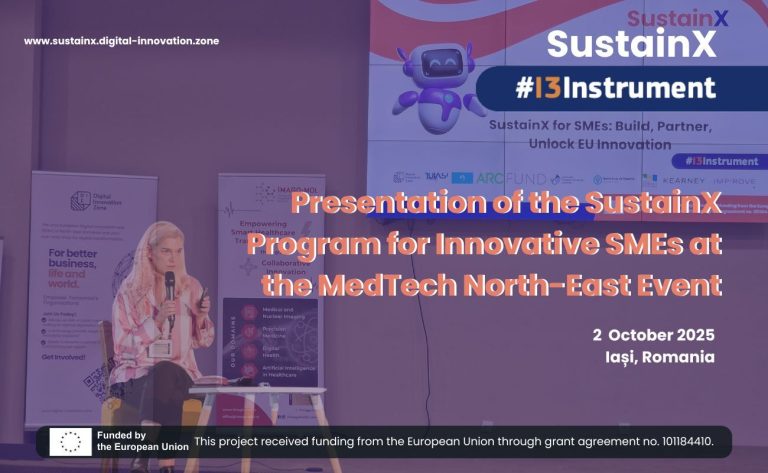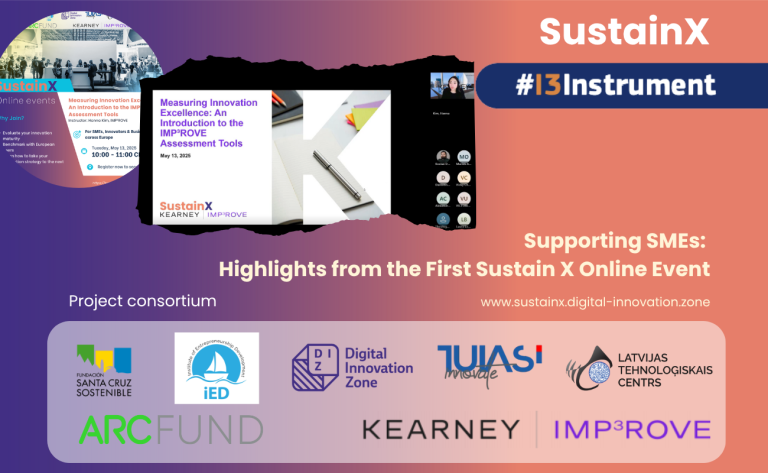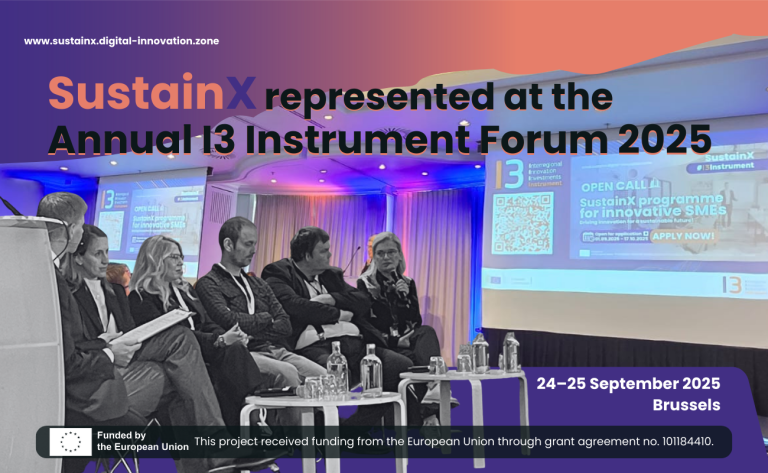There’s a quiet shift happening across Europe. It’s not just about innovation anymore—it’s about how we innovate, who gets to participate, and where the real value lies.
For too long, regional innovation strategies felt distant—crafted in boardrooms, guided by frameworks, and implemented through disconnected pilot projects. But on the ground, in places like Latvia, Romania, Bulgaria, and the Canary Islands, something new is taking root: a more human, responsive, and inclusive model of ecosystem development.
It’s called SustainX. And it’s more than just another EU project—it’s a collaborative engine for change. One that brings together researchers, SME support networks, universities, policymakers, and sustainability advocates under a common mission: to make innovation ecosystems more personal, participatory, and proactive.
A Journey That Starts with Listening
In Latvia, the change began with a question: What would it take for SMEs to truly lead in the country’s RIS3 priority areas—like bioeconomy or smart energy? The answer wasn’t more reports or generic funding—it was spaces. Places where businesses, researchers, and local authorities could sit at the same table, dream big, and design together.
The result? Co-creation hubs like the Bioeconomy Lab and Smart Energy Forum. These aren’t symbolic. They’re becoming central meeting points for aligning knowledge, funding, and action—tailored to Latvia’s strengths and needs.
Romania’s Digital Momentum
Meanwhile, in Romania, the Digital Innovation Zone (DIZ) team knew the buzz around “digitalisation” wasn’t reaching every SME. So they did something different: they started talking with businesses directly. Not about tech for tech’s sake, but about what mattered to them—competitiveness, efficiency, survival.
From those conversations came a practical approach: digital readiness assessments, peer coaching, RIS3 matchmaking, and concrete plans for scaling up smart manufacturing and e-health solutions. With support from TUIASI, Romania’s academic excellence is now being translated into everyday innovation—where research fuels action, and talent stays rooted.
Bulgaria’s Strategic Pivot
In Bulgaria, the ARC Fund saw that one of the biggest barriers wasn’t a lack of ideas—it was the disconnect between actors. Policymakers worked in one silo, SMEs in another, and universities somewhere in between.
SustainX changed that. Through Sustainability Roundtables, ARC Fund started bringing everyone together—not once, not for a workshop, but regularly, with purpose. Add to that a newly launched SME Helpdesk and capacity-building programs, and suddenly, RIS3 isn’t just a strategy—it’s a shared roadmap.
Island Innovation Meets Social Inclusion
Far from the mainland, in Santa Cruz (Canary Islands), Fundación Santa Cruz Sostenible is showing how sustainability and innovation aren’t parallel agendas—they’re intertwined. By focusing on inclusive participation, they ensure that the green and digital transitions benefit not just the loudest voices, but also communities often left behind.
Through local engagement, they’re proving that circular economy models, digital tools, and youth empowerment programs can thrive—even in places often considered peripheral.
Greece and the Power of Methodology
From Greece, the Institute of Entrepreneurship Development (iED) brings something powerful: structure. With their expertise in business model innovation, design thinking, and agile strategy, they help partners across regions make their ideas implementable. It’s not about controlling the process—it’s about empowering ecosystems to own it.
Whether it’s co-developing training for innovation lifecycle management or supporting digital startups, iED ensures that transformation is measurable, repeatable, and scalable.
Germany’s Quiet Influence
Hovering in the background—but playing a crucial role—is Germany. Not as a test site, but as a knowledge partner. Dashboards for RIS3 monitoring, impact measurement frameworks, and strategic foresight tools are being transferred and tailored for use across regions. It’s a quiet form of leadership—one that uplifts without overpowering.
More Than a Project—A Movement
What makes SustainX remarkable isn’t just what’s being done—but how. Each region brings its voice, its strengths, its challenges. And rather than trying to “harmonise” these differences, SustainX embraces them. It builds something bigger through trust, exchange, and purpose.
Over 100 SMEs and innovation intermediaries will benefit from direct support. New policy tools and dashboards are being piloted. And most importantly, new relationships are being forged—between people who used to sit at different tables.
This is not a top-down transformation. It’s bottom-up, sideways-in, and full of life.
The Path Ahead
As the project moves forward, the goal is clear: to turn fragmented pilots into people-centered ecosystems. To make Smart Specialisation not just a policy instrument, but a community practice. And to ensure that every innovation—green, digital, or otherwise—is rooted in the realities of the regions that need it most.
SustainX is proving that when innovation gets personal, it gets powerful.




